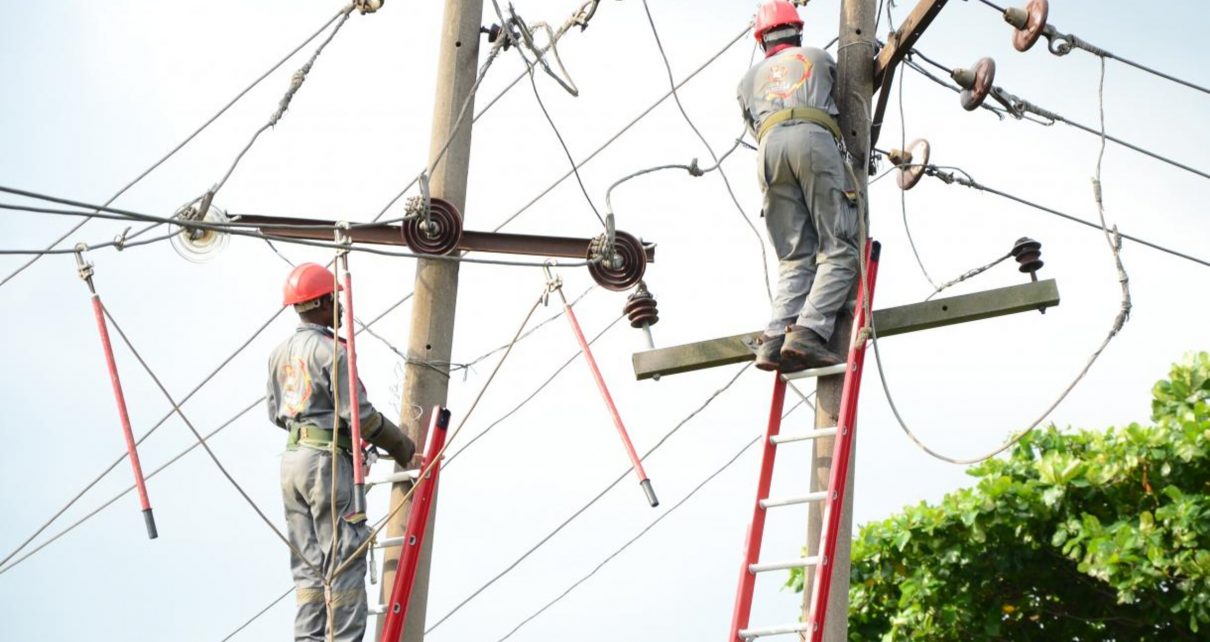Two decades after an abortive first attempt to break the national grid monopoly, the Lagos State Government has rolled out a Lagos Electricity Policy that would ensure that the people of Lagos State will begin to enjoy stable, and sustainable state-driven power supply by 2023.
This will form the basis of a comprehensive electricity law expected to be enacted by 31st December 2021.
Speaking at a Lagos State Electricity Policy Stakeholder Consultative Session on Thursday, the Commissioner for Energy and Mineral Resources, Engr. Olalere Odusote, highlighted that the policy will serve as a key driver for the socio-economic development of Lagos State.

According to him a stable and a sustainable power supply is key to the realisation of the vision for a Greater Lagos premised on the T.H.E.M.E.S Agenda of the Governor Babajide Olusola Sanwo-Olu administration.
Odusote emphasised that Lagos as the commercial nerve centre and the most populous State in Nigeria has enjoyed good governance, which has made it an immigrant destination for Nigerians and, as such, requires significant sustainable energy solutions.
The Attorney General and Honourable Commissioner, Lagos State Ministry of Justice, Mr. Moyosore Onigbanjo, SAN, in his remarks explained that the move to create the Lagos Electricity Market was a deliberate policy initiative of the State Government that rested on the powers vested in the State by Section 14 of the Concurrent Legislative list in the 1999 Constitution.
Onigbanjo also made it clear that the State Government is keen to collaborate with the Federal Government to transition regulation of electricity distribution within Lagos to a State regulator.
In presenting key elements of the Lagos Electricity Policy at the online event, the CEO of Excredite Consulting Limited, Mr. Eyo Ekpo, Consultant to the State Government, stated that “Electricity Reliability for Lagos State means supply that is available to any customer in the State Electricity Market in the desired quality and quantity at the time it is needed’’.
He explained the State’s key short and medium-term sector objectives include the enactment of an electricity law by 31st December 2021, achieving 30% year-on-year capacity and energy growth from 1,000MW/12,000MWh to 12,000MW/162,000MWh by 2028.
Dolapo Kukoyi, Consultant, UK FCDO African Clean Energy Technical Assistance Facility (ACE TAF), who supported the Lagos State Government on the off-grid energy aspects of the policy, noted the great value of off-grid solutions (OGS) in rapidly deploying clean technologies to bring electricity access to the State’s underserved and unserved areas.
This, she said, would reduce poverty, improve social equity and inclusion as well as create jobs.
Kukoyi noted that the Ministry of Energy & Mineral Resources will lead the development of an OGS strategy and plan to be executed by a specialised agency set up for the purpose.
In closing, Engr. Odusote enjoined stakeholders to work with the State to achieve its aspirations for the Lagos Electricity Market, which should drive wider access to reliable power supply, reduce the cost of living and doing business in Lagos.
The presentation of the policy was followed by various comments and questions from various stakeholders, who expressed support for the State Government’s initiative.
National power supply average since 2015 has not gone much beyond an approximate 4,000MW/48,000MW/h per day; a situation which has necessitated a state-driven power initiative.
For this reason, the Lagos State Government intends to institutionalise and execute a State Integrated Resource Plan.
The plan involves supporting improvement in power infrastructure in such a way as to drive wider access to reliable supply, reduce dependency on expensive backup generation and free up capital for savings/investment; thus, reducing the cost of living and doing business in Lagos.
But the plan requires secure stakeholder buy-in to support electricity market development aspirations.
The focus of the strategic plan is on attaining short and medium term electricity goals.
In the short term, Lagos State will drive the enactment of a comprehensive electricity law by 31st December 2021.
The law will enable the licensing of all relevant electricity market entities by 31st December 2022 while delineating the Lagos electricity market (LEM) from the national market by the same date.
As part of its medium term goals, Lagos State intends that full commercial LEM operations are expected to commence by 31st December 2023.
It aims to attain 30% year-on-year capacity growth and an average 18 hours of supply daily over five years with growth in
peak energy traded in Lagos State from 12000 to 15000 MWh daily in December 2022 to 81000 MWh (including a 15 reserve margin) by June 2028.
Ultimately, by 31st December 2039, Lagos State aims for the availability of reliable electricity, deploying the most efficient renewable and natural gas generation technologies, providing clean, adequate and constant access to all citizens without general recourse to alternative generator capacity.
In its first attempt at state-driven power supply in August 1999, the Lagos State government went into an agreement with Enron Corporation of the United States, the Federal Government acting as guarantor, for the construction of an independent power plant (IPP), the first in Nigeria.
The barge-mounted electricity generating plant was to have been located adjacent to the Egbin Power Station, Nigeria’s biggest power plant.
The generating facility was originally designed to consist of nine barge-mounted combustion turbines with a total net output of 290 megawatts of electricity.
The total investment of the project was estimated at $225 million with Enron controlling the majority shares, and Yinka Folawiyo Power Limited, a Nigerian conglomerate, owning the remaining.
By the terms of the agreement as presented by Lagos State, Enron was to generate the power and feed into the National Grid, which the then National Electric Power Authority (NEPA) as operator was to receive, transmit and distribute, while the State was to have had targetted destinations to have received power supply and marketed to consumers.
The state was to have generated bills and paid the accrued revenue into an escrow account from which Enron could draw; while the Federal Government would provide project support, being the guarantor.
Things began to go awry during the implementation of the agreement when nine days after the signing on 6th December 1999, NEPA gave notice that the agreement was “stayed until further notice”.
The Federal Government then wrote to the Lagos State on 13th January 2000 that the original agreement was to be considered “inoperative”, indicating that they were to renegotiate the agreement.
In the course of the negotiation, Enron then sold part of its interests in the project to AES Nigeria Holdings Ltd.
The remaining part of its interests which were still under dispute by the Federal and State governments remained in a limbo until Enron filed for Chapter 11 bankruptcy protection on 30th November 2001.
Negotiations on the agreement subsequently went silent which resulted in a legal contest at the United States District Court for the District of Columbia by Enron against the Federal and Lagos State governments claiming damages for “loss of chance to make profit” to the tune of US $475 million.
Judgement was eventually given and Enron was awarded US $11.2 million.


